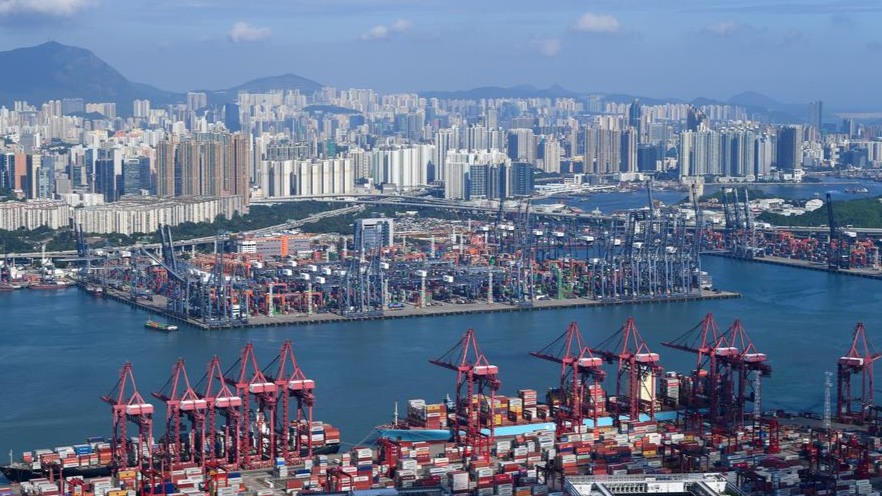
Amid the current trade uncertainties, Hong Kong’s trade and logistics sector should explore more overseas markets and the city should expand its middleman role from traditional goods exports to services exports as mainland enterprises have a growing demand for business services in undertaking overseas expansion.
This view was shared by panelists at the 2025 CEIBS Innovation Forum organized by China Europe International Business School (CEIBS) on Thursday. Themed “China Amidst Global Trade Turbulence: Growth & Innovation Opportunities in the Greater Bay Area,” the forum is examining how Hong Kong can leverage its unique strengths to secure long-term growth.
Bala Ramasamy, an economics professor, associate dean, and director of the GEMBA Program at CEIBS, said the impact of the trade dispute between the world’s two largest economies on Hong Kong may not be as strong as expected.
READ MORE: Hong Kong inflation remains stable amid trade tensions
“Most of Hong Kong’s export and import trades are within Asia. I believe more than 50 percent is within Asia. It means we have to take the US out, and deal with the US separately. The city’s trade and logistics sector can be business as usual with the rest of the world. The world is not only the US,” Ramasamy told China Daily in a sideline interview at the CEIBS forum.
He said that factors like climate change, the COVID-19 pandemic, and geopolitical issues have led to a reconfiguration of global supply chains, so it is important to ensure the resilience of supply chains.
As global supply chains are expected to be reshaped, Ramasamy said Hong Kong can play a pivotal role in services exports.
“Chinese mainland companies do not understand fully how to restructure their products or services to meet the demand from other parts of the world. They have to reposition their products or services. As there will not be much (marketing and branding) expertise on the mainland, Hong Kong companies can play the middleman role by offering their expertise,” Ramasamy said.
Maggie Wong, the permanent secretary for commerce and economic development, said the Hong Kong Special Administrative Region government will expand its economic and trade network.
“We have so far signed nine free trade agreements, covering some 70 percent of the SAR’s total value of trading goods, and 24 investment promotion and protection agreements with 33 overseas countries. We are also seeking to join the Regional Economic Partnership Agreement,” Wong said.
READ MORE: Lui: Crucial for HKSAR govt to continue policy of openness
She added that the government has set up a high value-added supply chain services mechanism, involving the Hong Kong Trade Development Council, to offer supply chain management one-stop advisory services to mainland and overseas enterprises to run their offshore businesses in Hong Kong.
“The conflict between the Chinese mainland and the US will provide Hong Kong with an opportunity rather than a threat, because of Hong Kong’s unique position as the country’s most important window to international finance,” Wong said.
“Hong Kong is pursuing a vast number of ways of development to keep the city on pace with international, financial and technological developments. Whatever the external circumstances, Hong Kong is now reemerging, and we will gallop on a robust growth trail again,” said James Lau Yee-cheung, the former secretary for Financial Services and the Treasury from July 2017 to April 2020, and the chairman of PAO Bank — the digital banking arm of mainland insurer Ping An Insurance (Group) Company of China.


